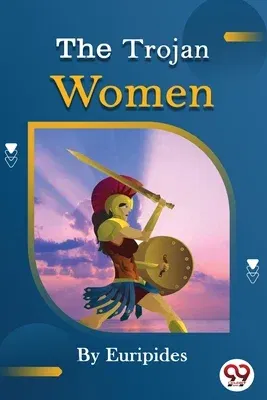Euripides
(Author)The Trojan women of EuripidesPaperback, 22 April 2022

Qty
1
Turbo
Ships in 2 - 3 days
In Stock
Free Delivery
Cash on Delivery
15 Days
Free Returns
Secure Checkout
Print Length
78 pages
Language
English
Publisher
Double 9 Booksllp
Date Published
22 Apr 2022
ISBN-10
9356567964
ISBN-13
9789356567962
Description
Product Details
Author:
Book Format:
Paperback
Country of Origin:
US
Date Published:
22 April 2022
Dimensions:
22.86 x
15.24 x
0.48 cm
ISBN-10:
9356567964
ISBN-13:
9789356567962
Language:
English
Pages:
78
Publisher:
Weight:
127.01 gm

